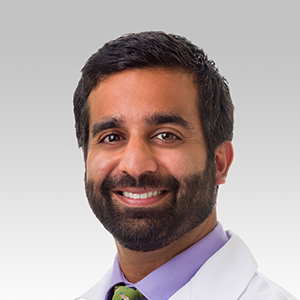Step-by-Step Guide to Your Eye Examination
Why Eye Exams Are So Important
Published July 2022
Even if you don't need glasses, you should still go see the eye doctor (ophthalmologist) every year as part of your primary care.
If you wear glasses or contacts or have other eye problems, changes or diseases, such as diabetes and autoimmune disorders, you may need to go see the ophthalmologist more than once per year.
"Seeing the ophthalmologist yearly for routine evaluation is an important part of preventative screening," says Northwestern Medicine Ophthalmologist Anjum F. Koreishi, MD. "When we catch eye diseases early, we're able to treat them with better outcomes."
Here's what to expect at your eye doctor appointment.
Health History
When we catch eye diseases early, we're able to treat them with better outcomes.— Anjum F. Koreishi, MD
Your ophthalmologist will go over your personal and family health history. You should come prepared to discuss any eye diseases your family members may have, as well as any issues you've been experiencing with your eyes, including vision problems and eye irritation. Your ophthalmologist will probably ask when your symptoms started, so be as specific as possible.
"A lot of visual complaints are hard to describe, so it's important to be as detailed as possible when explaining them to your clinician so that we can figure out what's going on," says Dr. Koreishi. "It may be helpful to write down your symptoms prior to your visit so you remember them clearly."
Be sure to bring a list of medications if you are on any.
Visual Acuity Test
This is probably what you think of when you think of an appointment with your eye doctor, potentially including the reading chart with the letters on it. You may complete a series of tests to determine how clearly each of your eyes is seeing both near and far.
From this testing you'll get results that are typically written in a fraction, like 20/20.
The top number in the fraction is always 20, as it's the standard distance that testing is done at: 20 feet away. Normal visual acuity is 20/20. The bottom number is the smallest letter size you were able to read. A person with 20/40 visual acuity would have to get within 20 feet to see a letter that should be seen clearly at 40 feet.
If you wear glasses or contacts, your ophthalmologist will make sure your current prescription is still working for you. Most ophthalmologists do not do new contact lens prescriptions, but can check glasses prescriptions.
Eye Function Tests
During a basic evaluation of your eye, your ophthalmologist will check your eye pressure and pupillary reaction.
"Elevated eye pressure is a risk factor for glaucoma, which is why it is one of the vital signs of the eye," says Dr. Koreishi.
Your physician will also examine the areas around your eyes, including the eyelids and tear ducts for any abnormalities.
Dilated Exam
To see what's going on inside and behind your eye, your ophthalmologist may need to put special drops in your eye to dilate your pupils. Your pupils will be dilated for a few hours, and during this time you will be extra sensitive to light and have blurred vision. You will likely be sent home with special sunglasses to protect your eyes from light. Some patients prefer not to drive with their eyes dilated, so plan accordingly.
"It's necessary to dilate your eyes every year in order to get a good look at everything we can't see from the outside of the eye," says Dr. Koreishi. "Certain groups may need dilated exams more frequently than every year, including people with diabetes or problems in the retina."
While your eyes are dilated, your physician will look at the front and back of your eyes through a machine called a slit lamp. They will check the surface of the eye, called the cornea, for inflammation or issues related to dry eyes. They'll check the lens of your eyes, which helps focus your vision, for cataracts. Then they'll move to the back of your eye to examine the shape and appearance of the optic nerve to look for any glaucoma risks or other issues related to the optic nerve. They'll check the retina, the wallpaper lining the inside of the eye that is crucial for vision, for conditions that may affect it, such as diabetic retinopathy, macular degeneration or membranes on the retina.
Other Workup
Depending on the findings of your annual exam, your ophthalmologist may also recommend other workup, such as bloodwork and additional imaging or scans of the retina or optic nerve to evaluate your symptoms. This additional workup will typically be done the same day as your appointment.
Come Prepared
"The visit to your ophthalmologist takes a lot longer than your regular annual primary care exam because there is so much testing we have to do, so plan ahead for your time and bring something to keep you entertained during testing, if necessary," says Dr. Koreishi. "Come see us every year, but if you have other eye health concerns, such as blurry vision, please come see us sooner."







